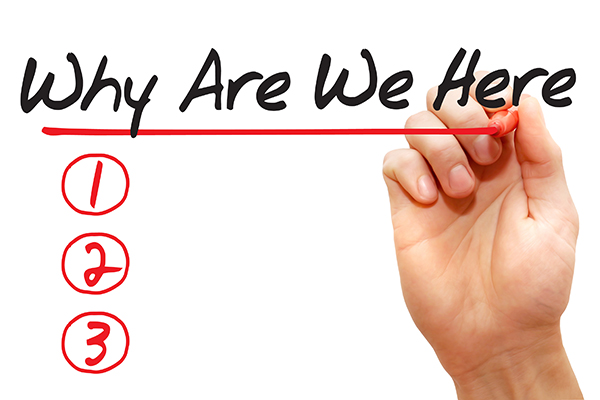Gather any group of successful leaders together and ask them to define significance. You may well get as many answers as there are people in the room. What you will find, though, is that every one of them believes in the value of pursuing significance.
As leaders, where do we begin in our journey toward significance? What does that look like, and how might we carry out the vision we have inside us? A good place to start is by eliminating a few “trap” ideas, which my good friend, author E. Adam Porter, calls “The Terrible Toos.” These include several toxic ideas that keep us from being our best self: “too old” or “too young” or “too broken” … “too late” or “too untalented” or “too…” anything.
Once we set those “toos” aside, we put ourselves in the position to begin the process of becoming significant … and we can begin right now, right where we are.
Longevity and Dedication
Recently, I was listening to a talk by Mark Cole, CEO of the John C. Maxwell’s companies. Mark made a compelling statement about success: “Sustained success is a prerequisite to significance.”
There are many reasons for this. Part of it is plain old human nature. We tend not to trust something or someone unless it is proven. That takes time. We even have a cliché for it: “time-tested.” Why does that term hold such meaning for us? Because we respect the struggle to “make it,” to achieve day-to-day, much less long-term. It’s challenging, and it requires us to continue growing and adapting. No matter who we are or what we do, if we get it right for a sustained period of time, we develop a reputation of significance among our peers. When we continue, that often expands our significance outside our immediate sphere of influence.
So, if sustained success becomes significance, how might we begin that process, especially if we’re not already in a position of influence, or if we feel we’ve maxed out our influence where we are?
Meeting a Need
When we are more aware of what’s happening in the world around us, the needs become obvious. While there is no way for any of us to meet all the needs, there will be needs out there that people with our specific talents and experience may address. It might be tempting to see the status quo or stronger personalities around us as roadblocks to making a difference. We worry about how someone may react when we make a suggestion or share an idea, because we know people don’t like to be “wrong.” However, when we focus on solving a problem, we create opportunities for others. People who may bristle when they feel criticized, often pitch in to help when they see someone taking initiative.
Sometimes, when setting out to meet a need, we get stuck on where to start. The challenge may feel too big to tackle on our own, or it might require some steps or solutions we don’t yet see. When we begin to feel overwhelmed, it’s a good idea to take a step back and invest some time to see who is already working on that issue. I’ve noticed most people think they have to “go it alone,” which very often leads to a self-imposed roadblock. When we’re more open to working with others, whether it’s on our own project or when joining together with something that’s already going, we open ourselves up to tremendous opportunities.
Mentoring a Person
Mentoring is not a one-way street. Every mentor is being mentored by others, and everyone being mentored may help make a difference for someone else. We’re all at different places in our journey, and we all have value to offer. The key here is in the approach. Often, we’re mentors even when we don’t realize it. Simply by choosing to serve and inspire people, we are offering a positive and beneficial presence that will attract others. And, when we have the opportunity to mentor others one-on-one, we don’t need to have all the answers. We just need to be willing to help the other person find the right questions that will cause them to discover their own answer.
Developing an Idea
You don’t have to originate an idea to achieve significance and leave your mark. While some leaders are visionaries, others possess the skills to come alongside the originators and make their ideas even better. The world needs both these types of people at every level of every organization. So, no matter where we are, we can offer both our effort and our perspective to make something good even better.
The thread running through all of these opportunities to pursue significance is something else Mark mentioned in his talk: Success is focused on “me,” while true significance is found in helping others. When we internalize that idea and begin to see how it works in our own lives, the opportunities we have to achieve lasting significance become much clearer.
When you think about making an impact, what does that look like to you? Is it about getting something for yourself or giving something to others? What does that look like to you?


0 Comments